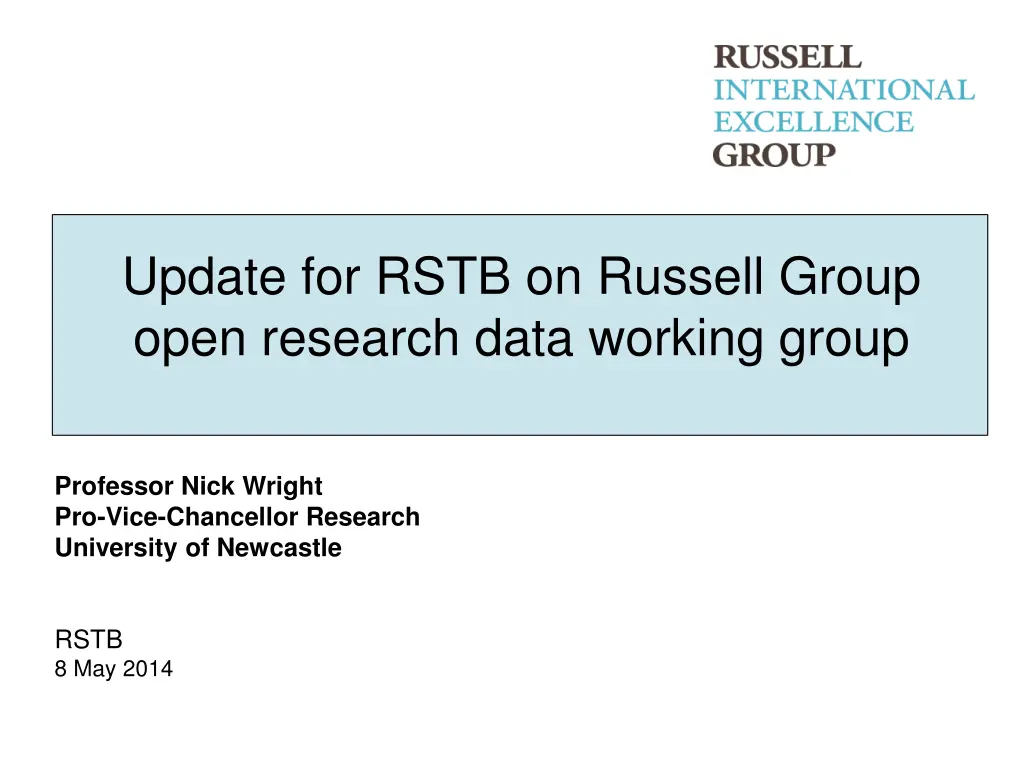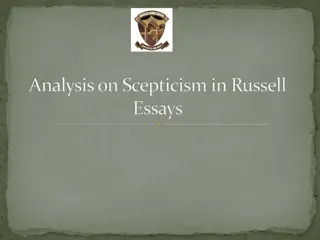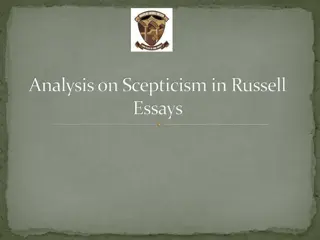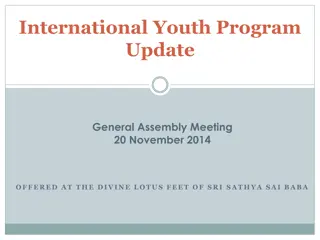
Open Research Data Management at Russell Group Universities
Explore updates on the Russell Group Open Research Data Working Group, highlighting best practices, practical issues, pilot projects, key principles, and potential areas of focus. Learn about the importance of sharing research data, decision-making tools, and the principles guiding the open data journey.
Download Presentation

Please find below an Image/Link to download the presentation.
The content on the website is provided AS IS for your information and personal use only. It may not be sold, licensed, or shared on other websites without obtaining consent from the author. If you encounter any issues during the download, it is possible that the publisher has removed the file from their server.
You are allowed to download the files provided on this website for personal or commercial use, subject to the condition that they are used lawfully. All files are the property of their respective owners.
The content on the website is provided AS IS for your information and personal use only. It may not be sold, licensed, or shared on other websites without obtaining consent from the author.
E N D
Presentation Transcript
Update for RSTB on Russell Group open research data working group Professor Nick Wright Pro-Vice-Chancellor Research University of Newcastle RSTB 8 May 2014
Best practice Sharing research data management experience Research data management plans/ policies being put online and open (at least 18 RGUs so far, others in progress) Info on training materials and data management tools also available Work on concordat building on key principles for open research data with group led by Rick Rylance
Practical issues Decision tree An active tool to help researchers make conscious decisions about what, when, where and how to make research data open Builds on key principles for open research data Discoverability Recognition there will be multiple approaches to research data storage as ORD evolves Trying not to reinvent the wheel, but discoverability is key Kevin Ashley (DCC) to discuss pilot for a National Data Registry and Discovery Service at next meeting
Pilots Help demonstrate what can be achieved and engage widely draw on existing infrastructure and practice Allows costs and benefits to be estimated Allows innovation to occur Develops understanding of cultural and organisational issues Tests protocols and technical issues in real life Potential areas Physical sciences (eg chemistry) Medical Sciences Humanities (eg archaeology) Social sciences (eg linguistics)
Key principles The autonomy of researchers is critical, and they must be allowed to use the data they have collected to complete their research before it is made open. There must be safeguards to protect research data that is sensitive for commercial, personal, security or other reasons. There should be agreed and coherent selection criteria for which data should be made open, when and for how long. Value for money must be part of the criteria. Costs need to be proportionate. Length of storage should be decided by an agreed process that reflects cost and use. Working data should be protected (at the researcher s discretion) until validated; post- publication data should be open where possible and safe. Researchers should always benefit through acknowledgement when their data is used. Good data management in research projects is the foundation of open data. Taxonomy and meta-data obligations should be both agreed and stable. Open data is a journey: we should be determined to make progress at pace where practical, but timescales will vary according to the nature and scale of the challenge.
Professor Nick Wright Pro-Vice-Chancellor Research University of Newcastle pvc-research@ncl.ac.uk






















